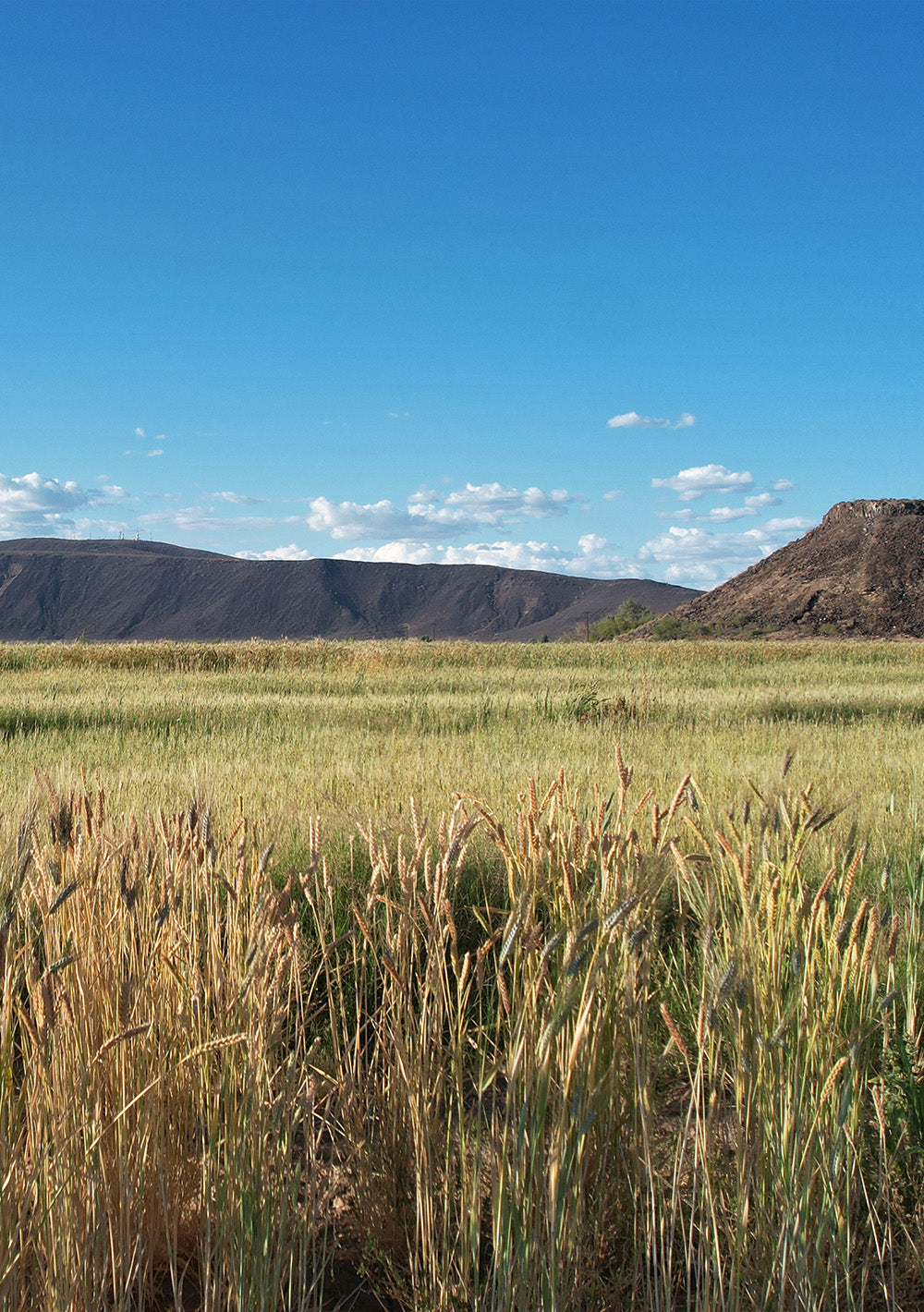

Oatman Flats Ranch, our 665-acre family farm located along the Lower Gila River surrounded by basalt mountains, combines rich history with present-day innovative regenerative organic farming. Under Dax and Leslie Hansen's stewardship, this ancient crossroads has transformed into a model of regenerative agriculture for arid climates. Learn more about our regenerative impact here.
Oatman Flats Ranch, our 665-acre family farm located along the Lower Gila River surrounded by basalt mountains, combines rich history with present-day innovative regenerative organic farming. Under Dax and Leslie Hansen's stewardship, this ancient crossroads has transformed into a model of regenerative agriculture for arid climates. Learn more about our regenerative impact here.
1852: The Gila River valley was a thriving ecosystem with giant cottonwood trees and pristine riparian habitat, documented in watercolor paintings by U.S. boundary surveyor John Russell Bartlett.
1955: Ray and Marie Hansen (Dax's grandparents) purchased 665 acres, naming it Oatman Flats Ranch. They raised cattle, cotton, and quarter horses for over 50 years.
Late 2018: After decades of conventional farming and drought had devastated the land, the family put the ranch up for sale. Dax and Leslie Hansen purchased it to preserve the family legacy.
2019: Their first visit revealed a harsh landscape of rattlesnakes, tumbleweeds, and dust devils. They began regeneration efforts using cover crops, rotational grazing, and zero synthetic chemicals. They achieved organic certification, and Farm Manager Yadi Wang joined the team.
2020: Planted and harvested their first regenerative crop—heirloom White Sonora wheat —marking the beginning of their water conservation journey. Soil organic matter increased 50% in the first year.
May 26, 2021: Oatman Flats Ranch became the first Regenerative Organic Certified® farm in the American Southwest.
1852: The Gila River valley was a thriving ecosystem with giant cottonwood trees and pristine riparian habitat, documented in watercolor paintings by U.S. boundary surveyor John Russell Bartlett.
1955: Ray and Marie Hansen (Dax's grandparents) purchased 665 acres, naming it Oatman Flats Ranch. They raised cattle, cotton, and quarter horses for over 50 years.
Late 2018: After decades of conventional farming and drought had devastated the land, the family put the ranch up for sale. Dax and Leslie Hansen purchased it to preserve the family legacy.
2019: Their first visit revealed a harsh landscape of rattlesnakes, tumbleweeds, and dust devils. They began regeneration efforts using cover crops, rotational grazing, and zero synthetic chemicals. They achieved organic certification, and Farm Manager Yadi Wang joined the team.
2020: Planted and harvested their first regenerative crop—heirloom White Sonora wheat —marking the beginning of their water conservation journey. Soil organic matter increased 50% in the first year.
May 26, 2021: Oatman Flats Ranch became the first Regenerative Organic Certified® farm in the American Southwest.
Five years after starting their regenerative journey, Oatman Farms has conserved over one billion gallons of water, supported over 120 species of flora and fauna, restored 665 acres, and created a successful line of Regenerative Organic Certified® products including wheat berries, stone-milled flour, pancake mixes, and vanilla extract. We've also increased soil water infiltration rate by 50x, doubled soil organic matter, and built critical regenerative grain infrastructure.
Five years after starting their regenerative journey, Oatman Farms has conserved over one billion gallons of water, supported over 120 species of flora and fauna, restored 665 acres, and created a successful line of Regenerative Organic Certified® products including wheat berries, stone-milled flour, pancake mixes, and vanilla extract. We've also increased soil water infiltration rate by 50x, doubled soil organic matter, and built critical regenerative grain infrastructure.
Through partnerships with Pizzeria Bianco, Chompie's, and Arizona Wilderness Brewery, we're bringing regenerative food to Arizona communities while demonstrating how farms can thrive growing clean, nutrient-dense food while healing the land, even in the harshest environments.
Through partnerships with Pizzeria Bianco, Chompie's, and Arizona Wilderness Brewery, we're bringing regenerative food to Arizona communities while demonstrating how farms can thrive growing clean, nutrient-dense food while healing the land, even in the harshest environments.
